Why can't US presidents stop North Korea from developing nuclear weapons?
Not only President Donald Trump but also his predecessors have thought about using military measures to stop North Korea's nuclear weapons program. However, all of Washington's plans against Pyongyang seem to have failed despite the fact that the position of the White House owner has changed many times.
 |
| Former US President Bill Clinton (sitting, left) meets with late North Korean leader Kim Jong-il in Pyongyang in August 2009. Photo: AFP |
US presidents struggle with the North Korea problem
President Donald Trump has recently made repeated tough statements against North Korea, threatening to unleash "fire and fury" or warning of unprecedented consequences for Pyongyang if it takes any action that threatens US security.
This is not the first time that North Korea has become a hot issue on the US agenda. Previously, many US presidents had headaches trying to find a solution to the North Korea problem. And after President Trump's recent "cold" statements, a question has been raised: Why have former US presidents never taken actions similar to Mr. Trump's statements to prevent North Korea from developing its nuclear program?
When former President Bill Clinton was faced with the threat of North Korea's withdrawal from the Nuclear Non-Proliferation Treaty, he considered using military force against Pyongyang.
However, Mr. Clinton eventually chose to sit down with North Korea to sign the Joint Agreed Framework. North Korea then stopped its plutonium production program in exchange for fuel ships and a light-water reactor from the United States. However, neither the United States nor North Korea ultimately fully implemented their joint commitments.
The North Korean issue then resurfaced during the presidency of George W. Bush, a leader who disliked North Korea. Bush included North Korea in the “Axis of Evil.” The Bush administration discovered that North Korea had secretly developed a uranium enrichment program, which violated the spirit of the Clinton-era agreement.
In 2006, North Korea tested its first nuclear device. However, in 2007, Bush himself lifted sanctions on the North Korean regime and entered into new negotiations with Pyongyang. But in the end, North Korea rejected these offers of talks.
 |
| Former US President Barack Obama looks through binoculars while visiting US soldiers at the Ouellette observation post along the demilitarized zone on the border between North and South Korea in March 2012. Photo: Reuters |
Former US President Barack Obama looks through binoculars while visiting US soldiers at the Ouellette observation post along the demilitarized zone on the border between North and South Korea in March 2012. (Photo: Reuters)
By the time Barack Obama took office, North Korea had resumed its nuclear and missile programs. Pyongyang had completed missiles, sunk a South Korean ship, and shelled a South Korean island.
At the same time, Kim Jong-un officially took over as leader of North Korea and accelerated the country's weapons program. During this time, the Obama administration continued to pursue a policy of "strategic patience" and avoided punishing North Korea even when Pyongyang made provocative moves.
By the time President Donald Trump officially entered the White House earlier this year, he had inherited a mess left by previous administrations on the North Korea issue.
Meanwhile, Pyongyang has shown increasing progress in its weapons development. Kim Jong-un’s regime has not only tested ballistic missiles at an alarming rate, but is also believed to have succeeded in miniaturizing nuclear warheads to mount on missiles.
Can Trump do anything different from previous administrations?
 |
| US President Donald Trump (right) and North Korean leader Kim Jong-un. Photo: Reuters |
Seoul, the capital of South Korea, is the reason why three US presidents before Trump could not destroy North Korea's nuclear facilities even if they had the chance, according to analyst Eli Lake. North Korea has enough firepower to reach Seoul and kill hundreds of thousands of South Koreans. This scenario, if it happens, could easily trigger a world war and throw the global economy into chaos.
Former US Defense Secretary William Perry said the US cannot destroy North Korea's nuclear facilities through military strikes because they have been continuously expanded by North Korea over the past 20 years. Moreover, the price that the South Korean people will have to pay will be unpredictable.
Meanwhile, John Plump, former director of defense policy and strategy at the National Security Council under former President Obama, commented: “If I were in the Trump administration, I would look at the threat of Seoul being destroyed and try to calculate the likelihood of it happening in reality. To me, this scenario has been mentioned so many times that it has almost begun to lose its seriousness. Attacking Seoul, a densely populated area, is different than attacking a remote military outpost. It is too risky, that is for sure.”
 |
| A US-South Korean military exercise. Photo: The Sun |
According to analyst Eli Lake, US intelligence officials in recent months have concluded that the threat of a North Korean attack on the South Korean capital is real. In the event that the US retaliates and attacks North Korea, the damage to US forces, which have been stationed in South Korea for more than 60 years, would be enormous. That is not to mention the damage to US allies such as Japan.
Regarding President Trump's tough statements, expert Eli Lake said that the US leader should be more careful in his statements. Mr. Trump has warned that he will unleash firepower on North Korea, but will that firepower be able to end Pyongyang's nuclear program? Will Mr. Trump be willing to order an attack on North Korea to overthrow the regime? And if the White House boss really does so, will he have enough human resources, material resources, and time to stabilize North Korea after the regime of leader Kim Jong-un is overthrown?
A series of questions have been raised after President Trump's tough statements. According to expert Eli Lake, like previous administrations, Trump's statements are just empty words, although in the coming days, the White House boss will continue to issue such warnings or threats.
According to Dan Tri
| RELATED NEWS |
|---|

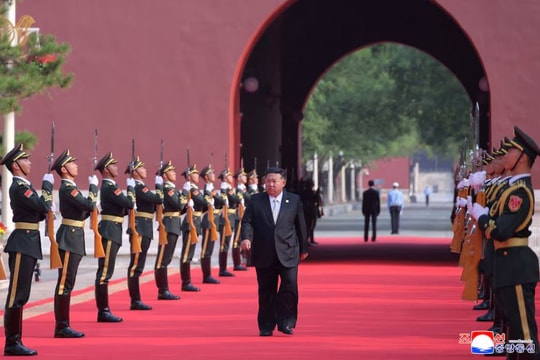
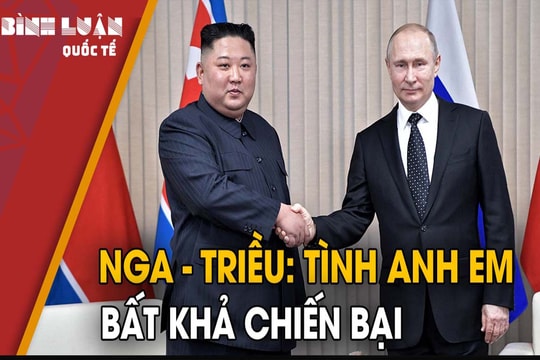
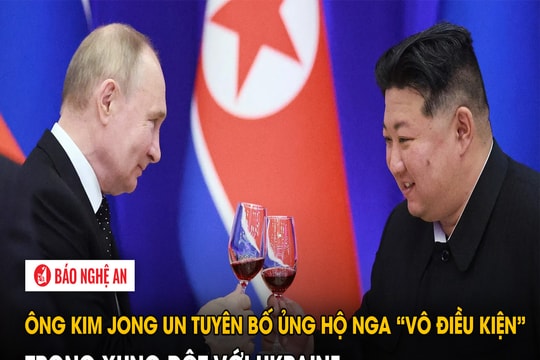
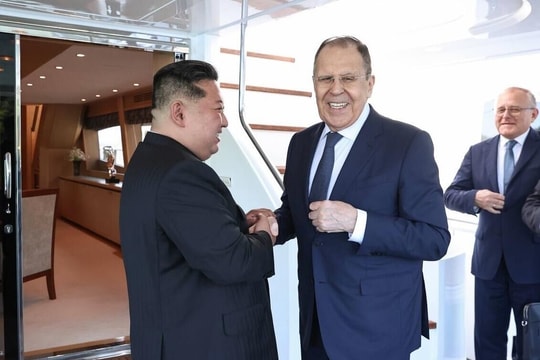
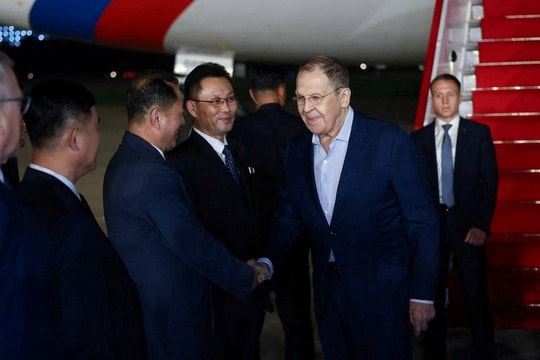
.jpg)

